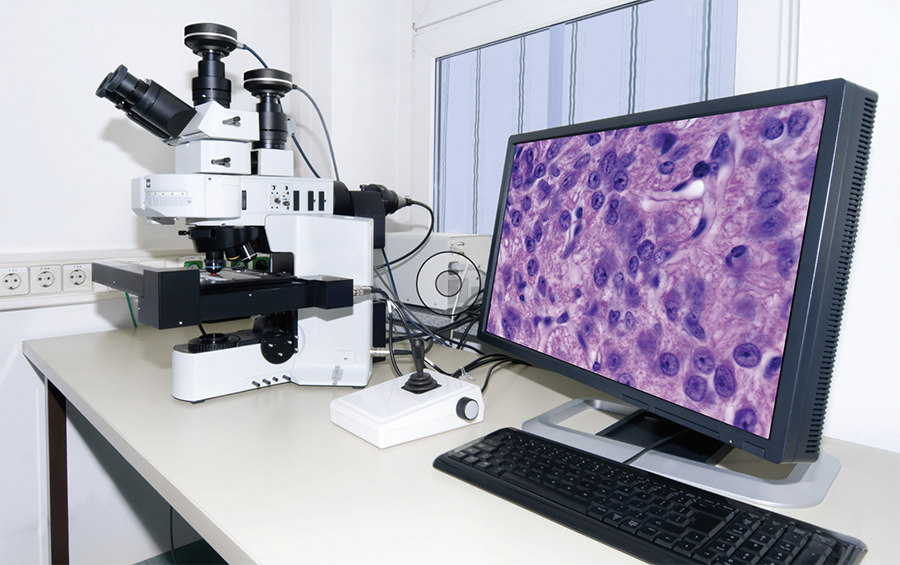
A new Visoria B Digital Laboratory Microscope purchased by the WCC Foundation is expanding access and enhancing instruction in the college’s Life Sciences Department — especially for students with visual impairments.
Life Sciences faculty member Kalthoum Bayz requested funding for the microscope after learning about its innovative digital capabilities.
“This is a perfect example of how donor support directly enhances the student experience,” said Nikki Borges, WCC’s Chief Philanthropy Officer. “We’re proud to help bring cutting-edge, accessible equipment like this to our classrooms.”
Unlike traditional optical microscopes that require users to look directly through the eyepiece, the Visoria B connects to a high-resolution digital display, allowing students to view specimens together on-screen. This makes it particularly valuable for sight-impaired learners, who can magnify, adjust contrast, or use color filters to better distinguish microscopic details.
“This microscope allows instructors to display real-time, high-resolution images of specimens to the entire class, enabling them to guide students through complex techniques together,” Bayz said. “By integrating this advanced technology, we’re fostering an inclusive and equitable learning environment where every student, regardless of visual or physical ability, can fully engage in hands-on scientific discovery.”
The Visoria B microscope is designed for clinical-grade histopathology and cytopathology, featuring encoded optics for reproducible settings, ergonomic controls for long lab sessions, and integrated digital documentation through Leica’s Enersight software.
Instructors can easily capture, annotate, and share images, improving both collaboration and accuracy in lab exercises.
The purchase reflects the WCC Foundation’s commitment to supporting faculty innovation and student success through technology investments that make learning more inclusive and interactive.
Tags: Biology, November 2025, On The Record, Technology, WCC Foundation
